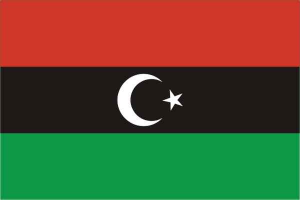Language/Libyan-arabic/Grammar/Questions
Hi Libyan Arabic learners! 😊
In today's lesson, we will be discussing how to ask questions in Libyan Arabic. Asking questions is an important part of any language, and it is essential to understand the different ways to ask questions in Libyan Arabic. We will cover the different types of questions, as well as the grammar rules for forming questions. By the end of this lesson, you should have a good understanding of how to ask questions in Libyan Arabic.
Types of Questions
There are two main types of questions in Libyan Arabic: yes/no questions and wh-questions. Yes/no questions are used to ask for a simple yes or no answer, while wh-questions are used to ask for more detailed information. Let's look at each type of question in more detail.
Yes/No Questions
Yes/no questions are used to ask for a simple yes or no answer. They are formed by using the verb form "hal" (هل) at the beginning of the sentence. For example:
Hal anta tayeb? (هل أنت طيب؟) - Are you okay?
Hal anta katab? (هل أنت كتب؟) - Did you write?
Note that the verb in the yes/no question is always in the present tense, regardless of the tense of the verb in the statement form. For example:
Katabt (كتبت) - I wrote
Hal anta katab? (هل أنت كتب؟) - Did you write?
Wh-Questions
Wh-questions are used to ask for more detailed information. They are formed by using the wh-word at the beginning of the sentence. The most common wh-words are: ma (ما), min (من), ween (وين), and leesh (ليش). For example:
Ma anta katab? (ما أنت كتب؟) - What did you write?
Min anta katab? (من أنت كتب؟) - Who did you write?
Ween anta katab? (وين أنت كتب؟) - Where did you write?
Leesh anta katab? (ليش أنت كتب؟) - Why did you write?
Note that the verb in the wh-question is always in the past tense, regardless of the tense of the verb in the statement form. For example:
Katabt (كتبت) - I wrote
Ma anta katab? (ما أنت كتب؟) - What did you write?
Grammar Rules
When forming questions in Libyan Arabic, there are a few grammar rules to keep in mind. First, the verb in the question must always agree with the subject. For example:
Ana katabt (أنا كتبت) - I wrote
Hal anta katab? (هل أنت كتب؟) - Did you write?
Second, the verb in the question must always be in the correct tense. For yes/no questions, the verb is always in the present tense, and for wh-questions, the verb is always in the past tense. For example:
Katabt (كتبت) - I wrote
Hal anta katab? (هل أنت كتب؟) - Did you write?
Ma anta katab? (ما أنت كتب؟) - What did you write?
Finally, the verb in the question must always be conjugated correctly. For example:
Ana katabt (أنا كتبت) - I wrote
Hal anta katab? (هل أنت كتب؟) - Did you write?
That's it for today's lesson on how to ask questions in Libyan Arabic. Now you should have a good understanding of the different types of questions and the grammar rules for forming questions. Practice asking questions in Libyan Arabic and you'll soon be able to communicate with ease!
If you have any questions, please ask them in the comments section below.
Feel free to edit this wiki page if you think it can be improved. 😎

